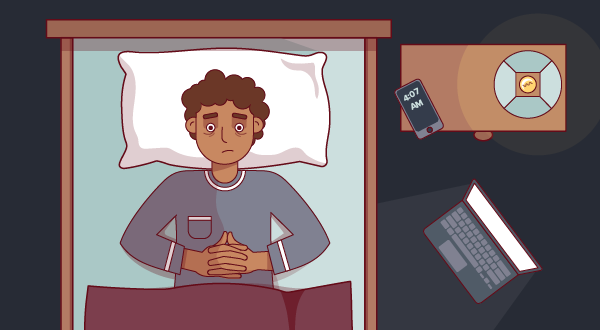Wil Schroter

We spend most of our time living in terror of things that never come to pass.
I call these "Paper Demons" because they are shallow, flimsy evils that we make up in our heads but somehow pretend they are entirely true. It's the many awful fates we consider of our startups and our careers if things go wrong or the knockdown, drag-out arguments we're going to have with investors if we crater this thing.
Our Paper Demons come in many flavors but they all share one trait — they are imaginary outcomes that we treat as if they are absolute. The problem with this thinking is that it consumes an insane amount of real energy and focus, which, ironically, is exactly what we need to conserve in order to avoid those fates.
My Investors Will Revolt!
Ah yes, if we get this wrong, all the people that we thought would be our biggest supporters, who believed in us so strongly, will band together with pitchforks and chase us out of town!
Except that's not at all how it actually happens. What we often forget is that the people who invested in us because they believed in us actually still tend to kinda like us. And let's just get crazy — some may be people who genuinely love and care for us.
Our evil investor fantasy (nightmare?) is a paper demon. Investors make tons of investments and they don't derive some special pleasure out of seeing us ground down to the core. If the time comes that we ever have to tell them "It's Over," we're actually in for a very short, very heartfelt conversation that is nothing like we imagined.
My Career Will Be Ruined!
Unless our worst case outcome involves getting the Elizabeth Holmes of Theranos "Do Not Pass Go, Go Directly to Jail" verdict, we're going to be just fine. Believe it or not, while it seems like the biggest black mark in the world in the moment it's happening, the sour outcome of our startup will be barely a memory within a few weeks or months after it shuts down (if it did).
No, our careers are not ruined. In the first year we feel ashamed because we failed, but as the years pass that turns into a battle story that we tell, and in most cases, some of the most valuable lessons we'll ever have learned. (I have plenty, and none of them were fun at the time.)
But here's a funny thing — our careers are never ruined because we're constantly building the next thing. What we see at this very moment as "the end of it all" winds up just being an interesting chapter in a much longer and hopefully more entertaining story.
My Competition Will Crush Me!
Of course, we can't get a full inventory of our demons until we lay out the big, evil competitor in our lives. While we fumble around to make ends meet they execute flawlessly and confidently with near assurance they will win in the marketplace.
But then something else happens — it turns out, and hold your breath on this, that sometimes more than one company is successful in a market. It's not like Henry Ford rolled out the Model T and every other would-be Elon Musk just decided to fold their tents.
We don't lose to competition - that's a Paper Demon. We lose to poor execution, bad products, and terrible customer acquisition. We lose to ourselves. Thinking our competition is truly our enemy is an excuse for our own performance and one that's a flimsy excuse at best.
These Paper Demons are created by us, which means they can be destroyed by us. What we need to do is recognize these are invented fantasies, not hard and fast outcomes. We need that nervous energy to do great things, not worry about awful ones. So let's do that.
In Case You Missed It
The Emotional Cost of Being a Founder. When we talk about building startups, we talk about lots of costs: Staffing costs, the cost of capital, cost per acquisition, and opportunity cost. But we never talk about the biggest cost – the emotional cost.
Is Doing Non-Startup Stuff Good For My Startup? (podcast) What if we knew that time away from our startup was the key to actually making it grow faster?
Why No One Tells Founders, It's Over, Move On (podcast) Wil Schroter & Elliot Schneier break down the failure of their company AffordIt, what actually happens when you run out of VC money, and when you should drop the ego & focus on doing what’s best for your mental health instead.
Find this article helpful?
This is just a small sample! Register to unlock our in-depth courses, hundreds of video courses, and a library of playbooks and articles to grow your startup fast. Let us Let us show you!
Submission confirms agreement to our Terms of Service and Privacy Policy.
Already a member? Login
No comments yet.
Start a Membership to join the discussion.
Already a member? Login
